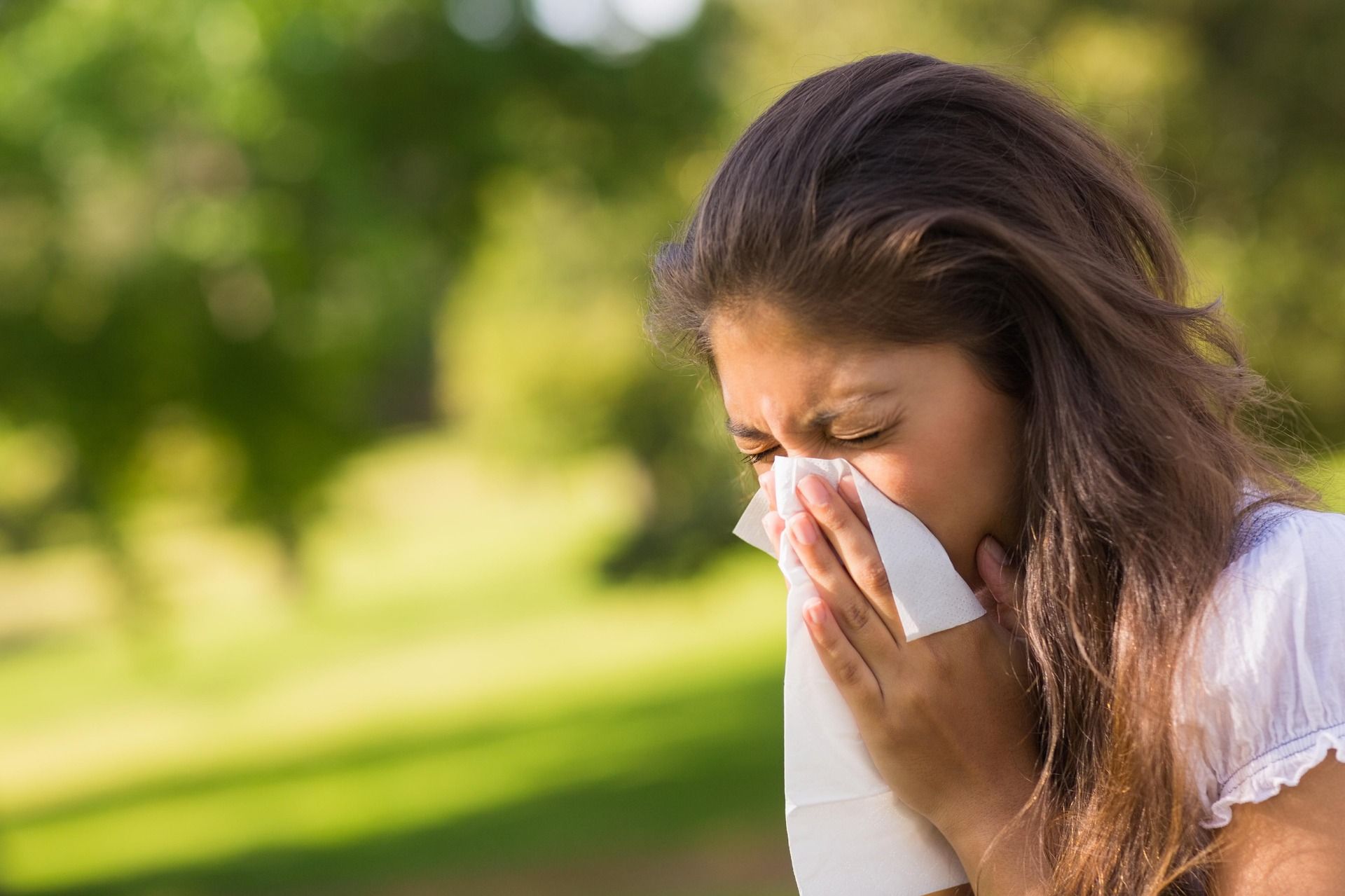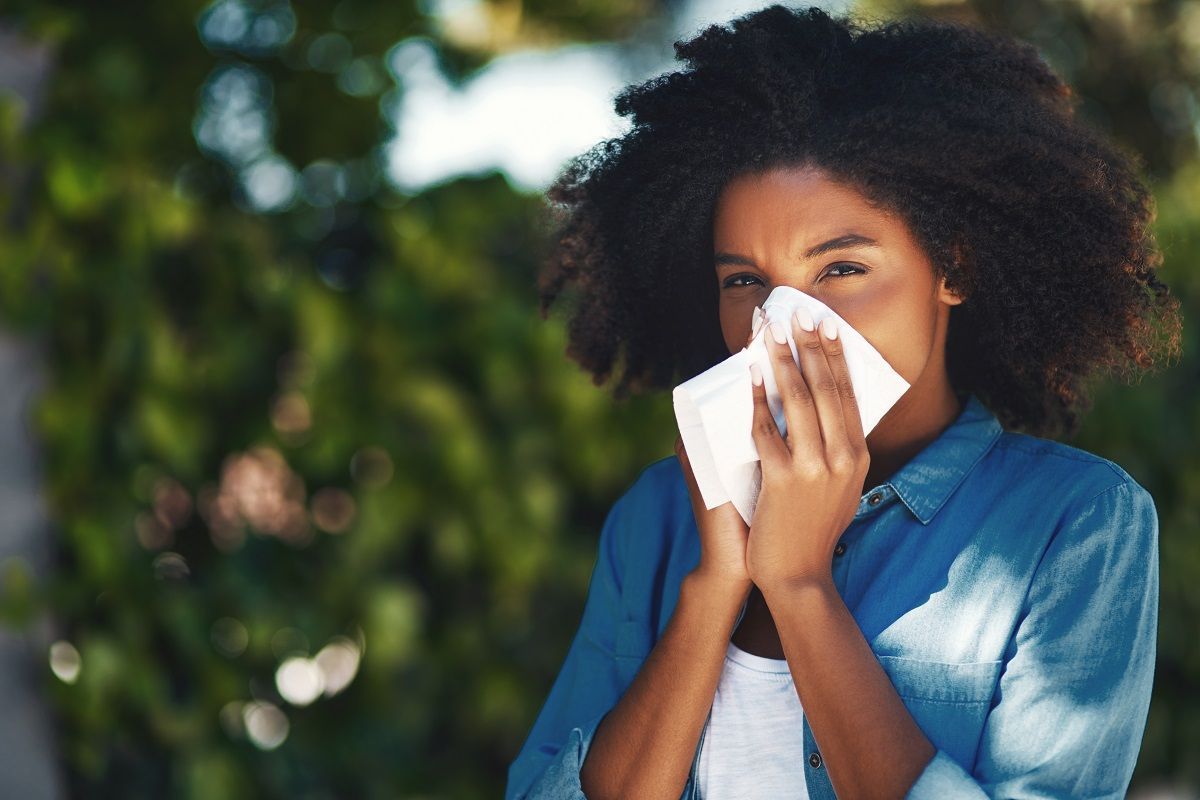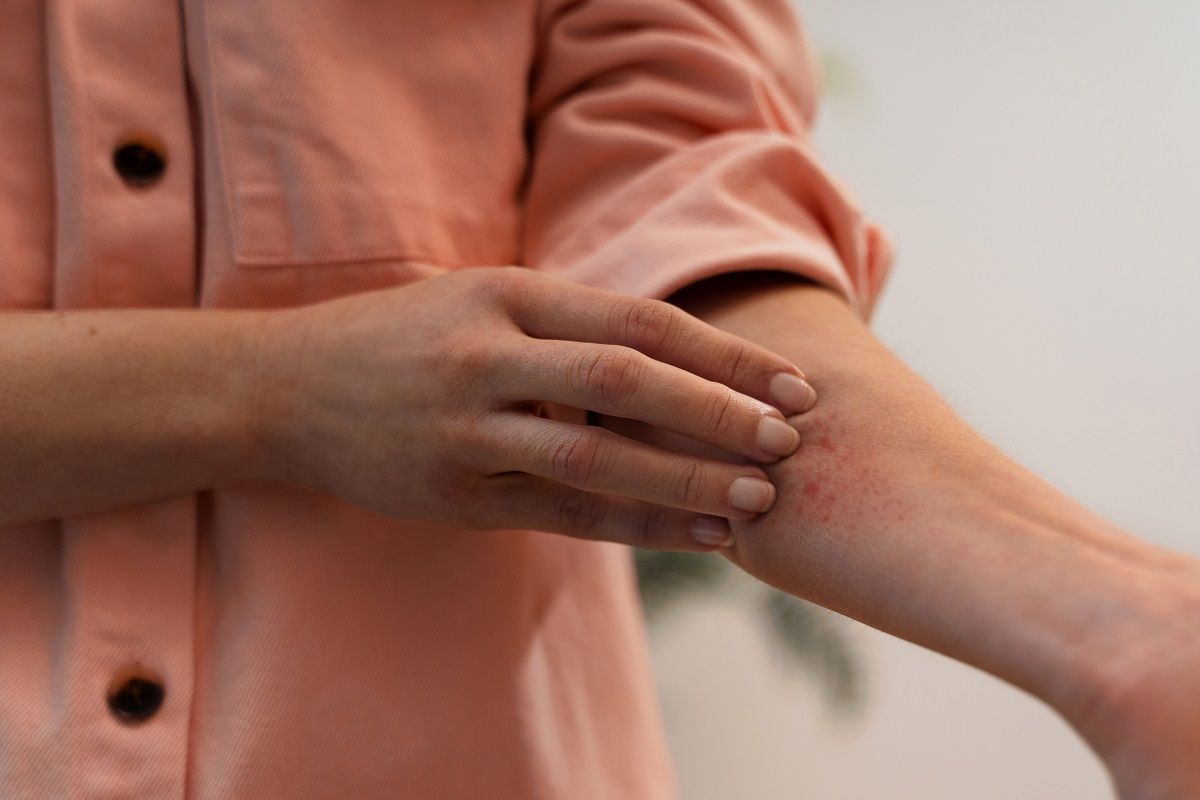
Can allergies mess with your vision? Various body organs can be affected by allergies, including your eyes. The common symptoms are similar to what you get with eyestrain, such as itchiness, redness, lid inflammation, excessive tearing, sensitivity to light, grittiness, and swelling. Most people focus on allergies affecting the skin or nose. However, you should never take eye allergies lightly. It requires special attention too.
Allergies affect the eyes in more ways than one. In addition, your vision plays a crucial role in your everyday life. Paying close attention to your eye's health is of the utmost importance. July is healthy vision month. This blog post will focus on eye allergies and how they affect your vision. We'll discuss the symptoms and provide helpful eye allergy management tips.
So, if you think taking good care of your eyes is essential to your overall health, read on.
What is an Eye Allergy?
An eye allergy or conjunctivitis occurs when your eyes negatively react to an allergen or a foreign object. Much like a common allergy, your eyes produce a chemical called histamine to combat the allergen. It typically results in a red and itchy eye. What's more, it's accompanied by excessive tearing and swelling. Individuals with eye allergies often suffer from nasal allergies too. These allergies may come from seasonal allergies.
Understanding Eye Allergies
How do allergies affect your eyes? Allergies affect the eyes in many ways. One of the most common signs and symptoms is itchiness. Unfortunately, the itching is only the beginning. The irritated eye(s) becomes red and swollen because of an allergen. Those are just a few symptoms that you may experience. The worst part is the feeling of something stuck in your eyes. We all agree that the discomfort is beyond irritating. Allergies can impair your vision and affect your overall quality of life.
Common Allergy Eye Symptoms
We've collected a list of the common symptoms of eye allergies. Please refer to the list below.
- Burning
- Redness
- Itching
- Watery discharge
Some people may also experience nasal allergies with the symptoms listed above. What's more, they may also experience coughing and a sore throat.
Eye Allergy Triggers and Causes
Your immune system's adverse reaction to allergens causes eye allergy symptoms. We've compiled a list of the causes and triggers for your better understanding.
Outdoor Allergens
Pollen from:
- Grass
- Trees
- Ragweed
- Smoke
- Pollution
Indoor Allergens
Pollen from:
- Molds
- Mildew
- Pet danders
- Dust mites
Learning the triggers of eye allergies is vital to reducing the risks of an adverse allergic reaction.
How Eye Allergy is Diagnosed
Accurate diagnosis is key to efficient eye allergy treatment. Here's how it works. An ophthalmologist will check your eye for infection and signs of eye allergies. A device called a slit-lamp microscope would determine your eye's health status. They typically look for swollen blood vessels in your eyes. In addition, they will conduct interviews regarding your family background with allergies.
For more accurate results, ophthalmologists will retrieve a tiny sample of eye tissue. This procedure will determine the severity of the allergy. Ophthalmologists can treat allergy symptoms in the eyes efficiently with these steps.
Treatment
The typical approach in treating eye allergies is medicinal eye drops and medication. Here are the most effective treatment methods.
Avoiding Allergens
Avoiding allergen exposure is one of the best ways to manage or prevent eye allergies. This includes indoor and outdoor allergens.
Outdoor Allergens
- Stay inside your house when the pollen count is high.
- Wear protective eyewear.
- Minimize hand-to-eye contact.
Indoor Allergens
- Close your windows and doors, especially in the evening.
- Regularly clean your room (to eliminate dust mites).
- Maintain low humidity (to prevent mold growth).
- Keep your pet/s well-groomed.
- Wash your hands thoroughly after pet contact.
- Keep your pets outside your bedroom.
Artificial Tears (Tear Substitutes)
Eye drops temporarily wash allergens from your eyes, providing relief. They keep your eyes moist, reducing redness and itching. Use these eye drops according to your eye doctor's recommendations.
Decongestants (Eye Drops)
Decongestants come in the form of eye drops too. They provide quick relief against itching and redness. They do this by reducing the inflammation of the blood vessels in your eyes. Additionally, eye drop decongestants can be purchased as an over-the-counter medicine.
Corticosteroids (Eye Drops)
Corticosteroids are ideal for treating chronic eye allergy symptoms. They are highly effective and can provide lasting effects. Remember to use them only under an eye doctor's supervision.
Allergy Shots (Immunotherapy)
In some cases, avoiding allergens is not possible. Your best bet is allergy shots or immunotherapy. This treatment method works by injecting small amounts of allergens into your bloodstream to increase your resiliency against allergies.
Mast Cell Stabilizer (Drops)
This eye drop prevents your immune system from releasing excessive histamines. Controlling your body's production of histamine reduces eye allergy symptoms. It is best to use this before going outdoors.
When to See an Eye Doctor
When your symptoms worsen after taking medication, consider visiting your eye doctor if your medicine does not yield any positive effects. In addition, contact your doctor ASAP if your vision gets impaired. Keep in mind that some eye allergy symptoms mimic eye disorders. It's better to get the opinion of a professional.
Maintain a Healthy Vision and an Allergy-Free Lifestyle
Managing allergies can help improve your overall quality of life.
Start your allergy-free journey with us. We understand the challenges of allergies and how it affects your vision. Bradenton and Sarasota Allergist Dr. Sabharwal can provide accurate testing and effective treatment based on your individual needs. Our immunotherapy service will help boost your immune system, preparing you for an allergy-free journey.
Call Allergy Affiliates at 941-792-4151 or book your appointment online by clicking on this
link.
Contact Us
Monday: 8AM–5:30PM
Tuesday: 8AM–5:30PM
Wednesday: 8AM–4:30PM
Thursday: 8AM–4:30PM
Friday: 7:30AM–4PM
Saturday: Closed
Sunday: Closed
Monday: 8AM–5:30PM
Tuesday: 8AM–5:30PM
Wednesday: 8AM–4:30PM
Thursday: 8AM–4:30PM
Friday: 7:30AM–4PM
Saturday: Closed
Sunday: Closed
Make an Appointment
Contact Us
We will get back to you as soon as possible.
Please try again later.
Contact Us
Tuesday:
- 9:00 a.m. - 12.30 p.m.
- 2:00 p.m. – 5:30 p.m.
Thursday:
- 8:00 a.m. – 11:30 a.m.
- 1:00 p.m. – 4:30 p.m.
Monday:
- 9:00 a.m. - 12.30 p.m.
- 2:00 p.m. – 5:30 p.m.
Wednesday:
- 8:00 a.m. – 11:30 a.m.
- 1:00 p.m. – 4:30 p.m.
Friday:
- 7:30 a.m. – 11:30 a.m.
- 1:00 p.m. – 4:00 p.m.
Make an Appointment
Contact Us
We will get back to you as soon as possible.
Please try again later.










